Volunteers are the linchpin of Australian society, lending their energy, skills and time to improve communities. Whether it be on the beach, fighting bushfires, delivering meals, providing friendship and support or caring for those who need assistance due to health issues, the volunteer contribution across Australia is remarkable. On the sporting field, this contribution was highlighted to a global audience with the Sydney 2000 Olympics. The National Library’s collection reflects the strong efforts made by so many across an enormous range of fields. This year, on International Volunteers Day, we explore some collection highlights and celebrate the extraordinary efforts of Australia’s volunteers.
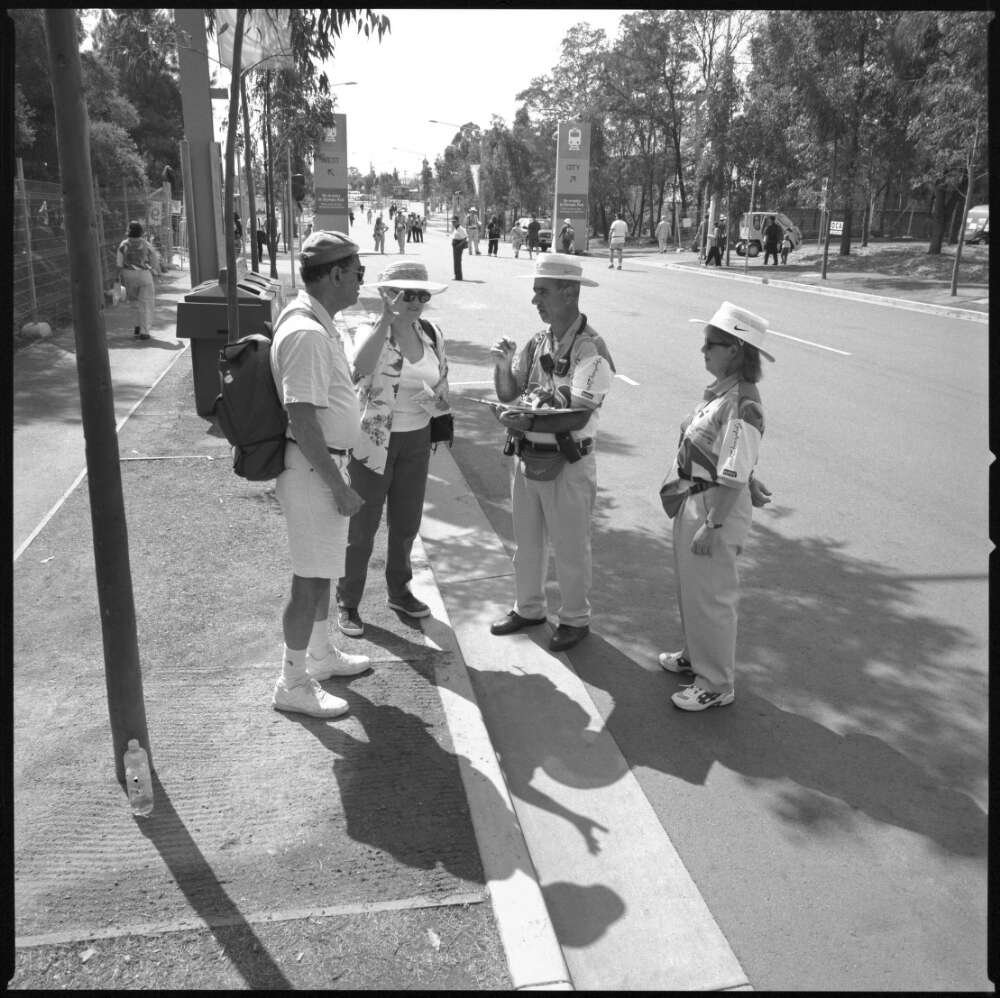
There are few images more iconic than Australia’s surf lifesavers – and the overwhelming majority provide their services as volunteers. Sir Adrian Curlewis, a former President of the Surf Life Saving Association from 1933 to 1977 and founder of Outward Bound in Australia, spoke about the enormous contribution made by Australia’s surf lifesavers and the efforts required to do this type of volunteering. He stated:
"They enjoy it because it’s their way of life, of enjoying a weekend on the beach. And they give up an enormous amount of time, training during the week and swimming, training and testing themselves on surf boats. And from where I sit at the moment, every afternoon looking down on to the harbour in front of me, there are boats training in still water to maintain their efficiency and that is all done in a voluntary and honorary spirit."
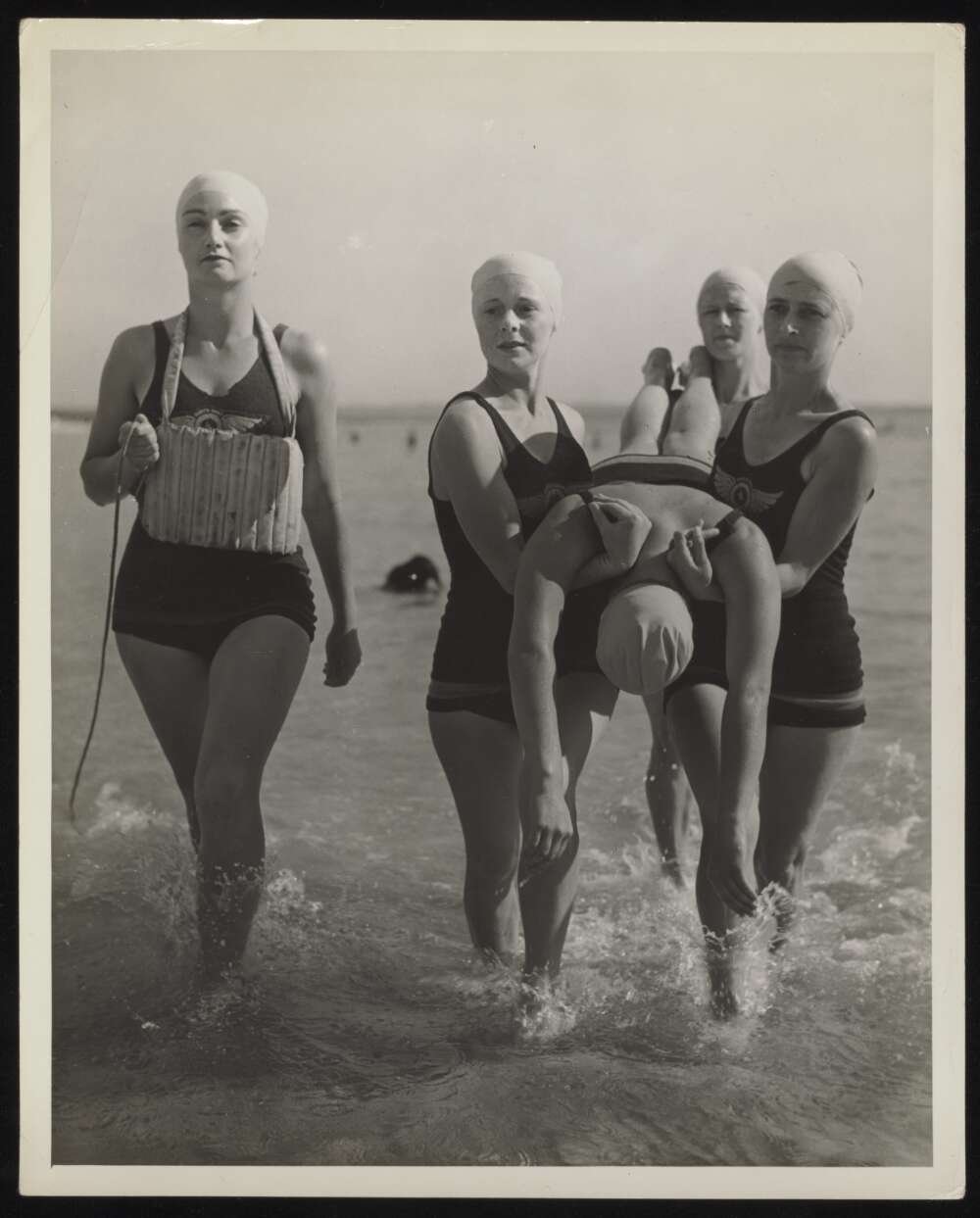
For many older Australians, volunteering has been a reoccurring contribution over a lifetime. Maeva Galloway, who was born in 1926, volunteered at many life stages. During the Second World War, she volunteered at the Red Cross and Manuka Services Club. Decades later, after her husband entered a nursing home, she volunteered to support the elderly as a visitor who provided company. She asserted that:
"It is important for people to act as volunteers because that is what society depends on. If everybody was selfish and stayed home and did nothing, it‘d be a very miserable life for everybody. I think it’s important to give, no matter what it is – your company, your money, your affection, whatever."
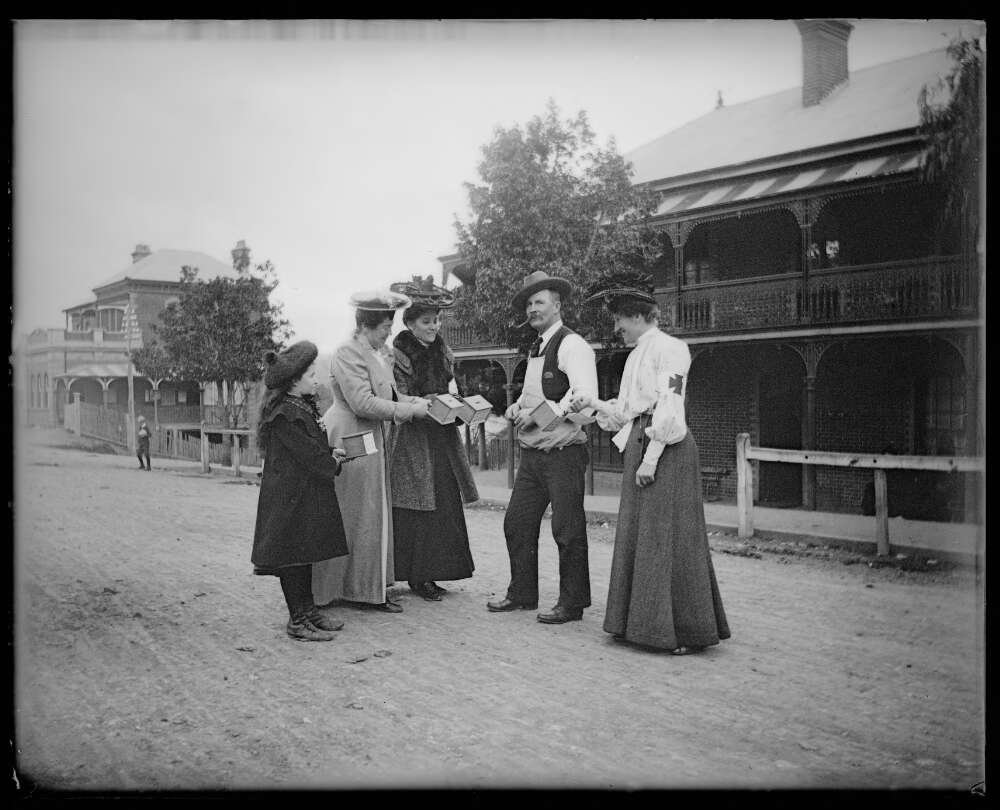
For Angeliki Puckey, who was born in Cyprus and migrated to Australia after meeting her husband George, volunteering was a strong thread in both their lives. She remembers: “with another lady, we were the first to start Meals on Wheels here in Manningham, which was Doncaster then.”
She was also involved with the Country Women’s Association and fundraising activities for the local hospital. After the death of her husband she became the Secretary of the Cyprus Community and was involved with the Greek Australian Choir. During his life, her husband was involved with the Lions Club and the Masons.
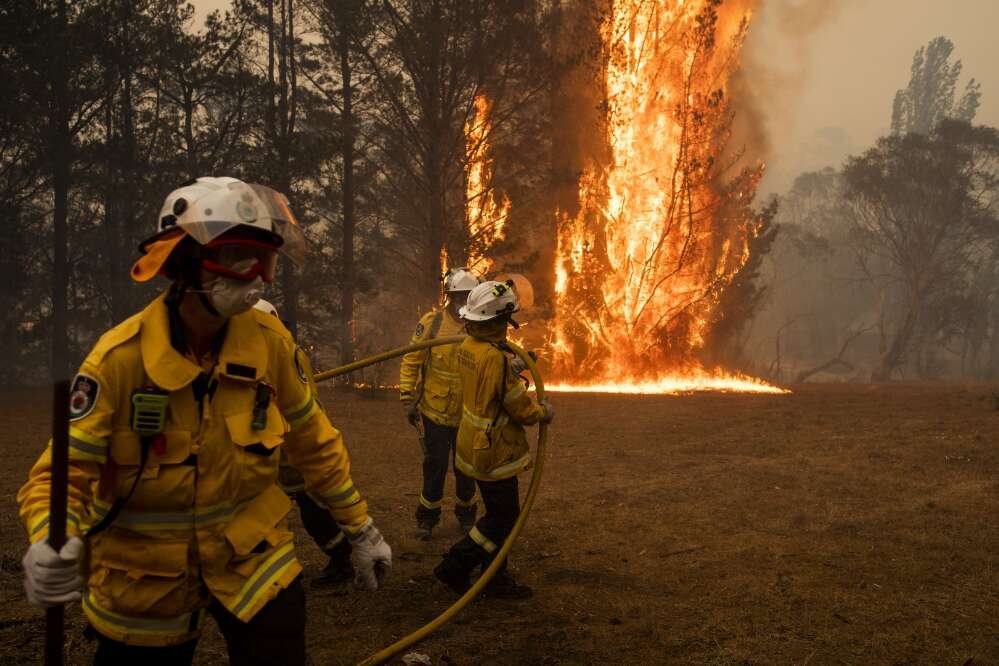
Volunteers with the Rural Fire Service also make critically important contributions to helping safeguard Australians against the threat of fires. Stuart Skene, who had volunteered with the Rural Fire Service in the Blue Mountains for five years at the time he was interviewed for the Library’s oral history collection, reflected on his reasons for joining. He stated:
"When we moved up to the mountains a few years ago it was something that I wanted to do. It's a very close-knit community. I wanted to be able to give back. I was very active."
While the role meant that he did witness great loss, it was something that Stuart found gave him a strong sense of friendship and connection. He stated:
"I don't want to sort of stop doing that. That's something I enjoy a lot. The guys that I actually get along with. The second day we were out it was actually a lot of fun. We just spent the whole time sort of joking and chatting and talking to one of the guys who'd been there for a while about it and it was sort of what he said sort of is the same way that I feel that when you're on the truck and you're having those jokes it's the camaraderie and, and that that really sort of drives home why you sort of do it. As much as it's the community thing and everything is it's nice being on the truck with the people that are involved."
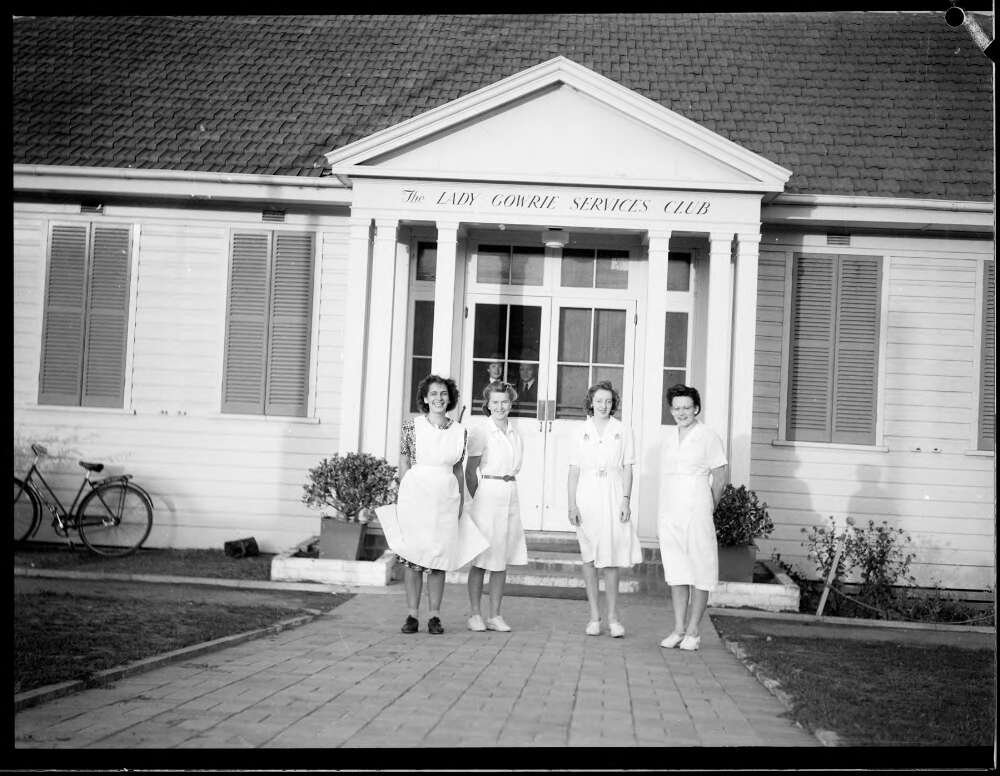
During the 1980s and 1990s, Australia developed a world-leading response to the HIV/AIDS epidemic. Volunteers played a crucial role during the height of the epidemic in Australia and the HIV/AIDS volunteers oral history project sheds light on this important and often unrecognised contribution. John Bal, who was involved with the Victorian AIDS Council from its origins in 1984, remembers the complex emotions of volunteering in a life and death capacity:
"There were so many of us that just gave and gave and gave. So it wasn’t one person out there martyring themselves. The people on the committees were your friends as well. There was a wonderful feeling of community and working together for a shared common goal. That’s a powerful experience for any person. So there was that to balance and buoy us up against the rigours of doing all that volunteer work, plus the burden of seeing friends getting sick, hearing about another friend that died, and going to funerals."
Many volunteers are keen to stress that they get back just as much as they give from their efforts. Michael Williams, who trained as an electrical engineer and worked in a range of roles, found he was becoming disillusioned and somewhat cynical about society. He states that “meeting people professionally only through work was giving me a skewed view” and that he “wasn’t really happy.” However, he started volunteering for Positive Links, an organisation which provides social support for people over forty who have had a stroke. Michael stated that he was giving three-and-a-half hours each week to the group and that he had found it to be part of a “concerted effort to try another pathway to engage with my community at another level” and that he was “much happier now” as a result.
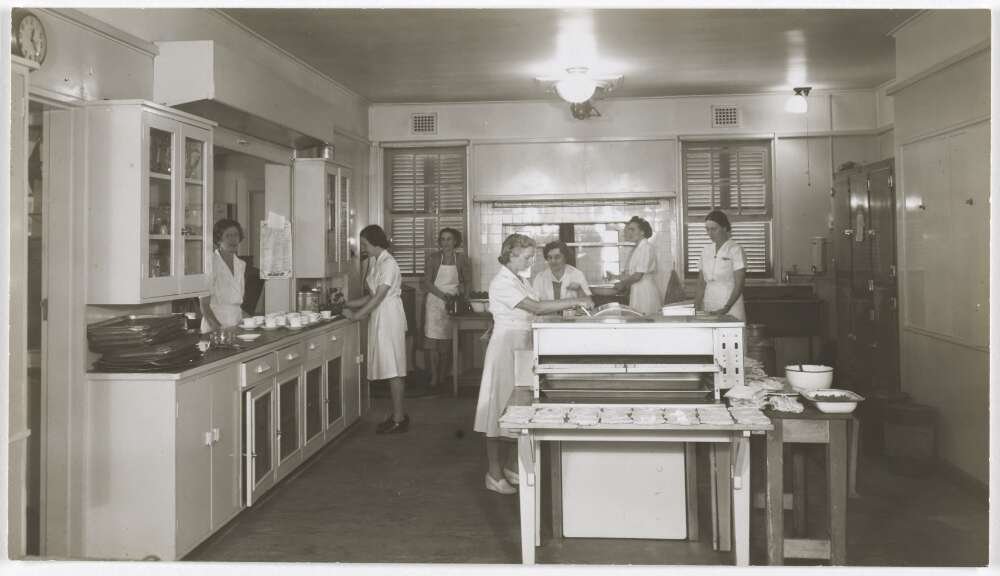
Australia is a far richer society for the contribution of volunteers all across the country. The National Library salutes their contribution and their enormous efforts, wherever they may be made. It’s clear that volunteers certainly are embodying the theme of this year’s International Volunteer Day, which is ‘Volunteer Now for Our Common Future.’